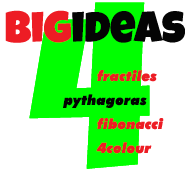ASTROPHYSICS & ASTRONOMY
Starts with a BANG!
Astronomy is the science of measuring the positions and characteristics of heavenly bodies, and astrophysics is the application of physics to understand astronomy. Including the physical properties (luminosity, density, temperature and chemical composition) of astronomical objects such as stars, galaxies, and the interstellar medium, as well as their interactions. WOW!
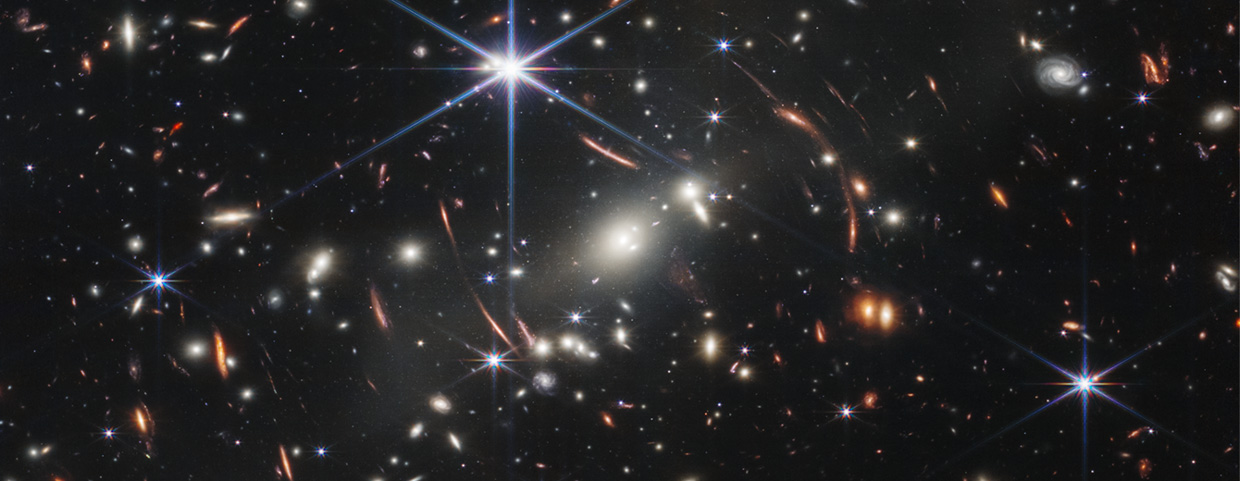
ASTRONOMERS ARE FREAKING OUT ABOUT JWST
NASA’s James Webb Space Telescope has delivered the deepest and sharpest infrared images of the distant universe so far. Webb’s First Deep Field is galaxy cluster SMACS 0723, and it is teeming with thousands of galaxies – including the faintest objects ever observed in the infrared.
Check out the latest photos as they are released here.
THE MOON
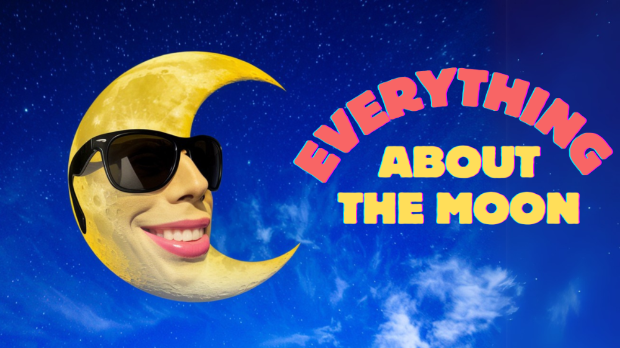
LEARN: Everything you’ve ever wanted to know about the MOON
by Bartosz Cienchanowski
This is a fantastic sight for K-12, great interactives,
Ideogram AI image, typography and design by Me
The SPACE Place
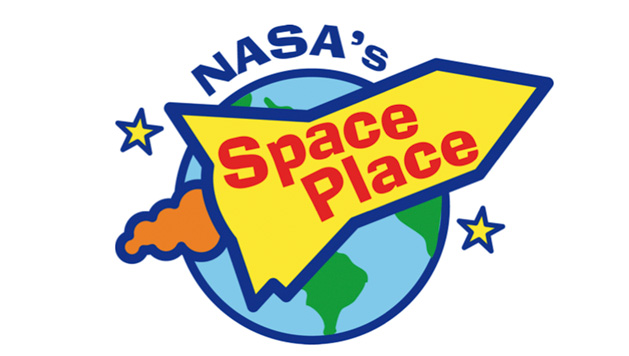
NASA's The Space Place
Launched in 1998, NASA Space Place's mission is to inspire and enrich upper-elementary-aged kids' learning of space and Earth science online through fun games, hands-on activities, informative articles and engaging short videos.
With resources for parents and teachers, NASA Space Place has something for everyone.
HEXAGONS IN SPACE
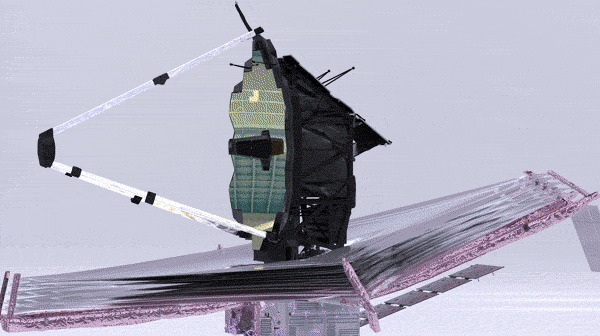
JAMES WEBB SPACE TELESCOPE
JWST is now officially the COOLEST instrument.
13 Apr 2022 JWST reached Operating Temperature. With help from a cryocooler, the Mid-Infrared Instrument has dropped down to just a few degrees above the lowest temperature matter can reach ready for calibration.
Keep UpToDate with the latest on JWST at NASA -Very COOL!
Watch the Videos Introduction to the JWST Mission
Animation of deployment sequence of JWST
Play the Kahoot! - James Webb Space Telescope: Hexagons in Space
JWST
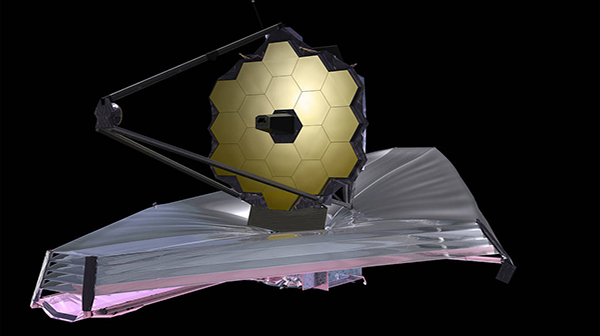
MAKE A MODEL OF THE JWST
Or enter the Art competition for JWST. Watch the Video UnfoldThe Universe
check out Nasa's paper model gallery for inspiration.
The JWST is made up of 18 hexagons in rows of 2 lots of 2, 2 lots of 3 and 2 lots of 4. HOW AMAZING! From Kindergarten up it is possible to make a model, starting with the Primary Mirror. Here’s a template of the
hexagon printouts in colour and in black and white.
Check out Nasa's YouTube Channel for the latest footage.
Grade Specific Info from NASA including the Toolkit
The Space Place - Including FUN Facts about the JWST
Neil deGrasse Tyson
Neil deGrasse Tyson - "As a native of Metropolis, I was delighted to help Superman, who has done so much for my city over all these years. And it's clear that if he weren't a superhero he would have made quite an astrophysicist."
Finding KRYPTON
The red dwarf star designated for having the ability to support a Krypton-like planet is located in the constellation Corvus 27.1 light years from Earth. The star, designated LHS 2520, possesses a red, highly turbulent surface, somewhat cooler and smaller than the Sun. To find it in the night's sky, amateur astronomers and Superman fans can follow these coordinates:
J2000
Right Ascension: 12 hours 10 minutes 5.77 seconds
Declination: -15 degrees 4 minutes 17.9 seconds
Proper Motion: 0.76 arcseconds per year, along 172.94 degrees from due north
LOTS of QUESTIONS???
What is the Hayden Planetarium about? Can I look at the night sky with my own telescope? How do telescopes work? If I was Superwoman could I find a home planet for myself? Here are some of the websites I researched.
The Hayden Planetarium is excellent images and resource which can be downloaded, educators guides, new discoveries. How Telescopes Work From How Stuff Works - great explanation - great info to explore
VOYAGER Missions
The Voyager program is an ongoing American scientific program that employs two robotic interstellar probes, Voyager 1 and Voyager 2. They were launched in 1977 to take advantage of a favorable alignment of Jupiter and Saturn, to fly near them while collecting data for transmission back to Earth. When I last looked NASA's Voyager 1 was approximately 22 billion KM and Voyager 2 was approximately 19 billion KM from Earth.
This is an amazing site with great images and videos. It also gives details of the contents of the "Golden Record. What is that? Go here and find out.
100,000 STARS

This will make you feel really small. TAKE A TOUR OF THE MILKY WAY AND DO take the tour. It starts off with our sun and some great captioning. LOVE IT
Another chrome Experiment.
181124
Infographic - TRAVELS in Time & Space

Great site with graphical representation of Human Space flight travels in time and space, by country, astronaut, duration in space and even Time dilation. Check it out Here
The Scale of the UNIVERSE
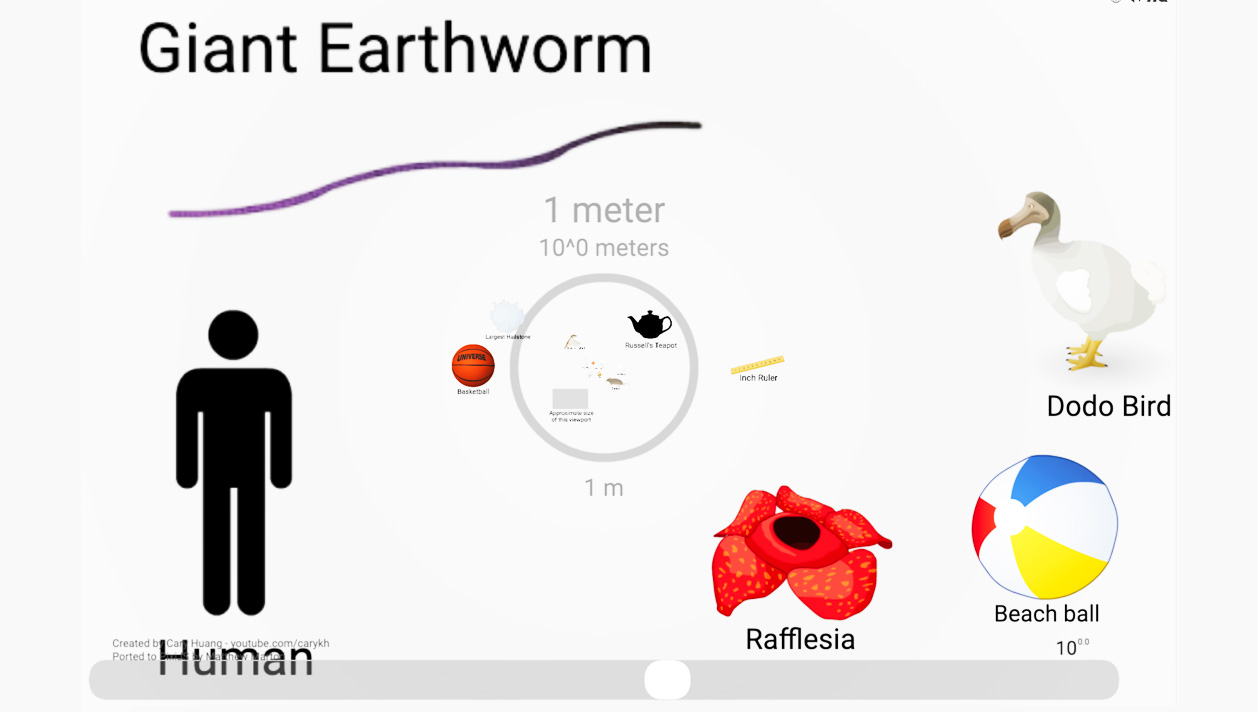
Scale of the Universe This is powerful interactive on the size of the Universe, the things within it and the speed of light. Some very big numbers here. Just a lovely resource.
There is also a Scale of the Universe App you can download.
The KNOWN Universe
This is an amazing video from AMNH. I love it - and the labels are great. I would like to thank the cameraman, who travelled 100 million light years away from earth and then came back again. He did a great job.
By far, the most beautiful and wonderful thing I've ever seen on a screen.
© Cathy Brown 1998 - 2025 © All images & Videos Cathy Brown Located in Sydney NSW Australia all rights reserved.
No unauthorised reproduction without written permission. Webmaster & Designer - Cathy L. Brown
Virtual Teacher is committed to ensuring that our AI systems & assistants are used responsibly & ethically. Our AI is designed to support educators & students by providing personalized learning experiences, enhancing engagement & promoting understanding. We prioritize the safety, privacy, & security of our users, ensuring that our AI tools operate transparently & align with the best practices in the industry.
The NSW AI AssessmentFramework requires self assessment to deterimin Determine whether your system / project should use the AIAF. All AI projects used by Virtual TEacher are Low Risk or No Risk applications. Check out the Risk Evaluation page attached.

